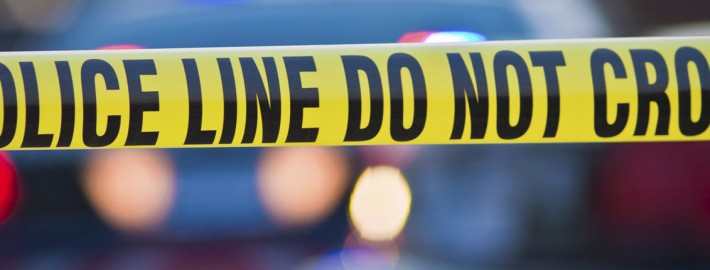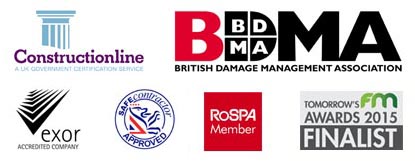How to clean up after a trauma
A trauma incident challenges the normality of our world like few other events. There are many factors that can contribute to a trauma incident; it may be as the result of an accident, an intentional act or as a result of individual tragedy.
Whatever the reason the aftermath of trauma needs to be handled in the right way.
Over the years ServiceMaster Clean have attended many trauma scenes on behalf of a range of clients who have unexpectedly been presented with a situation that needs to be dealt with effectively.
In the shock and panic that often accompanies trauma it can be easy to overlook both risk & responsibilities. The first responders are invariably circumstantial, people that just happen to close-by at the time, followed by the emergency services. The latter have a significant part to play, but this will not include anything that is left behind at the scene – and certainly not the cleaning process.
Whatever the trauma, the responsibility sits with the property owner, landlord, retailer, hotelier or local authority if the incident takes place in a public space. Once the emergency services have completed their work, cleaning should take place quickly; as part of a business contingency plan it makes sense to identify the organisations that will be able to assist you in a variety of exceptional situations.
Step 1: Isolate the affected area:
The first steps must be to cordon the area off; this reduces the risk of transferring blood borne pathogens. How do you know what contagions are there, you don’t so it’s important that your actions are based on worst case scenario!
Prevent access to the area unless it is entirely essential, if necessary consider how this access will take place and how you will prevent the transfer of contagions.
Step 2: Call a professional:
Although the area may not look overtly dangerous, attempting to clean without the knowledge & understanding of the hazards, appropriate training, the right products and equipment or correct PPE is just increasing the risk.
As an employer, you also have a duty of care for your employees, asking someone who is not trained to deal with the issue would be wrong. We are all human so we react differently to situations, again it would be wrong to place someone in a position that is distressing to them.
Step 3: Being sensitive
The impact of a trauma event can have a profound effect on people, even strangers. Absolute sensitivity is required when dealing with family members, friends or work colleagues.
The ability to provide an solution following a trauma event, especially when emotions are running high, is an important factor in ensuring that the short term & long term risks are managed.
Step 4: Being thorough
A professional trauma clean expert will identify the wider risk of cross contamination. The surface may appear to have been cleaned but the nature of the material, whether absorbent, porous or textured, may contain a residual risk.
Products use by professionals will have a known efficacy with blood borne pathogens and infections and this gives reassurance to the cleaning process. Equally the professional will take a pragmatic view about whether an item can be suitably cleaned and returned to a safe condition or whether it is more appropriate to dispose of an affected item(s).
In attending suicides, often in hotel rooms, we know severed arteries will create visible areas to clean; but we give the entire area methodical attention as not everything can be seen by the naked eye.
There are techniques and equipment that can be deployed to manage airborne pathogens. If suspected then the appropriate PPE would be a mandatory requirement.
Step 5: Disposal of bio-hazards
Disposing of bio-hazards is a specialist job. Understanding what can and cannot be rinsed away in a sink or washed into the watercourse and how to clean equipment used in the clean-up process required specialist knowledge and expertise. In extreme cases where body parts require disposal, following any crime scene investigation by the Police, collaboration with specialist organisations who carry this work out is necessary.
As a specialised and potentially dangerous service, trauma cleaning is best left to the trained professionals who can ensure everyone involved is kept safe and will remain safe. It is not worth cutting corners on cost to put lives in danger.



